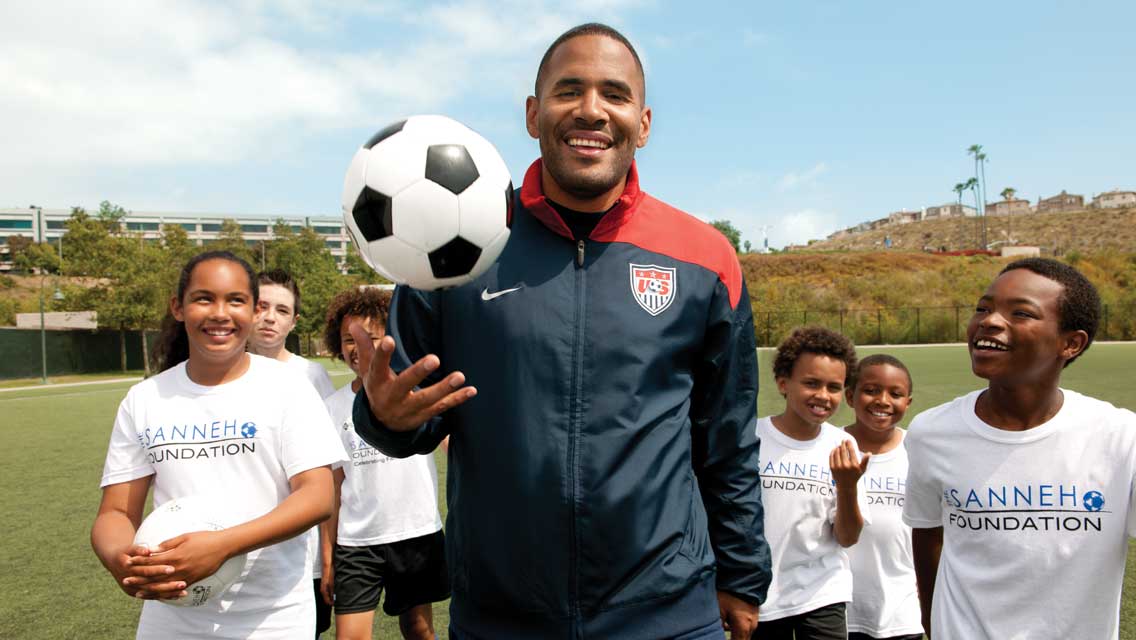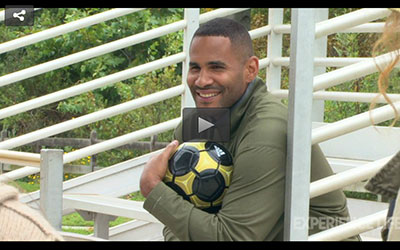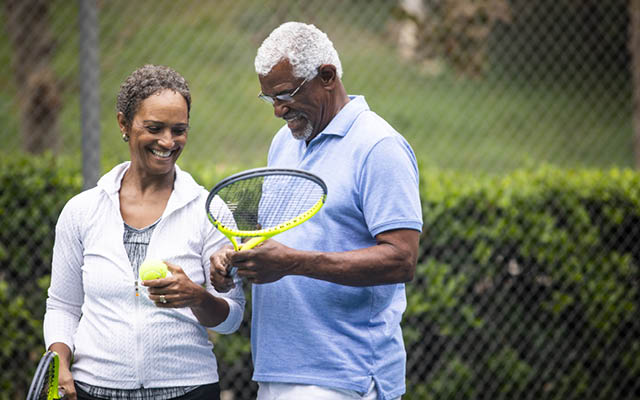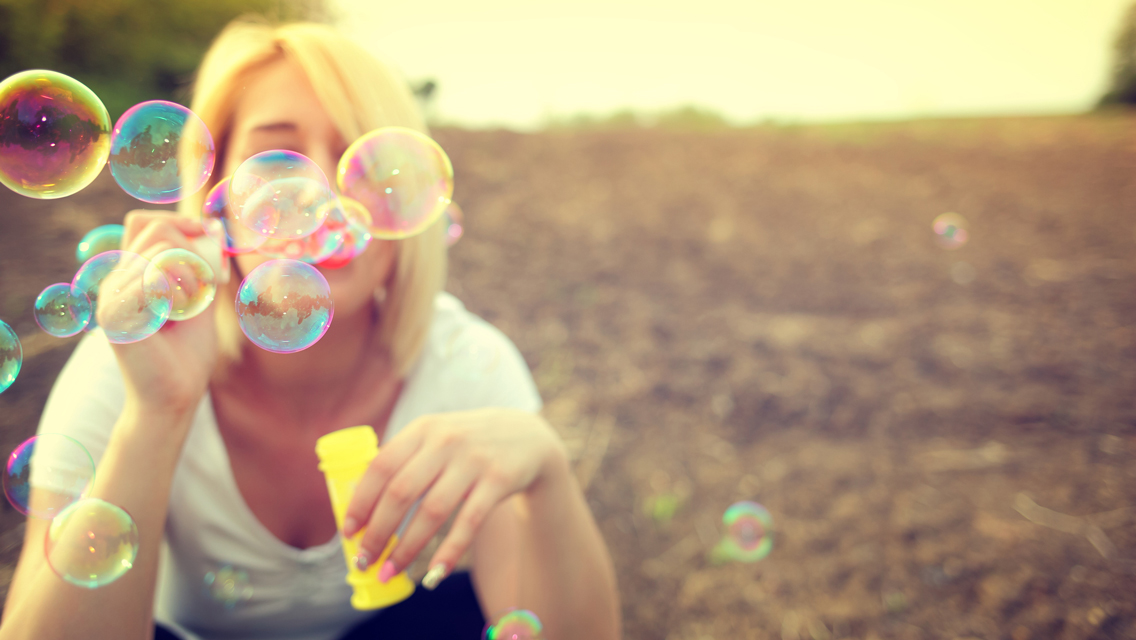EL | What inspired you to start The Sanneh Foundation?
TS | When I was young, a lot of people in the soccer community took me under their wing. In the summer, I’d play in open gym, and there would be five adults, five college guys, five 18-year-olds, five 16-year-olds — the older guys helped mentor the younger guys. I was raised by the community. It’s the way I was brought up, and now I’m doing the same thing.
EL | This is a big investment of energy for you. What’s the payoff?
TS | It allows me to still be involved in soccer, which is in my blood and my life. I get to teach kids and share in their development, and I get to see them grow and turn their lives around and focus on something positive. When you can do something for someone else, it brings inner joy.
EL | How did you get started playing soccer as a kid?
TS | My dad was born in West Africa, and I visited him there when I was 6. I played soccer there for the first time. When I came back to St. Paul, my mom signed me up for a soccer class. Through that class I met a coach at St. Paul Academy High School and he invited me to play for his team. I was 11, and I became best friends with his son. I ended up playing in the World Cup, and his son ended up playing in the Olympics.
EL | What are some of the highlights from your years as a pro?
TS | I played in the Champions League, which is a very special thing in the soccer world. You get goose bumps playing in that. I also played in the 2002 World Cup, which is every soccer player’s dream. And I take pride that when I played on the biggest stage, I played my best.
EL | What are you enjoying most about the transition to retirement?
TS | I’m a competitive person, and I like to be successful, and the foundation has started to experience success. We’re starting to get recognized nationally and internationally, and that means that we’re really having an effect on kids. People notice that what we’re doing is making a difference.
Last fall, I went to Pakistan and Haiti through the State Department to help with disaster relief. Then I went to Cyprus to teach soccer and promote conflict resolution. This spring I met Hillary Clinton at a State Department event to celebrate empowering women and girls through sports. And I was invited to speak and lead workshops at the World Youth Peace Summit. Locally, I’m on the “Sprockets” leadership team, which works with the City of St. Paul and the mayor on developing after-school initiatives.
Eighteen months ago I was a pro soccer player, so this is a very new thing. But already people like what we’re doing, and they’re asking to use us as an example. So it pushes us to raise the bar. Where can we make a difference? How can we make it better? That’s really rewarding and challenging at the same time.
EL | What, if anything, keeps you up at night?
TS | I’m a pretty easygoing, roll-with-the-punches kind of guy, and I don’t take things that seriously. There aren’t too many things that really jar me.
The one thing that will keep me up at night is thinking about what I have to do tomorrow. When you take on something that really matters to you, as I have right now, you’re always thinking about how you can make this or that better: What about this idea? Or, in the middle of the night, I’m coming up with a new soccer drill to teach the kids. What keeps me up at night is how I’m going to be consistent for these kids, because now they depend on us.
EL | What do you do in your leisure time?
TS | I play basketball quite often. I play chess because it’s a mental challenge and I like to think and figure things out. It’s relaxing, but at the same time, your brain is working.
EL | You’ve said that “every kick, pass and save can make a difference.” What do you mean by that?
TS | We’re trying to teach kids not to take things for granted and to give 100 percent on every single play. What we’re telling kids is, everything you do matters — in the game and in life. When you make a wrong pass, it might not seem like a big deal, but the results of that could be that the other team goes on and scores. What you do when you’re 16 and in school is going to affect you when you’re 25. In life, every choice, every event makes a difference.




This Post Has 0 Comments